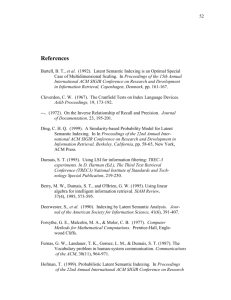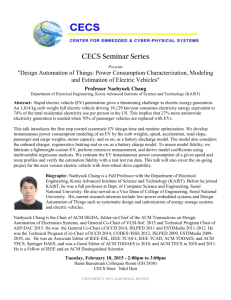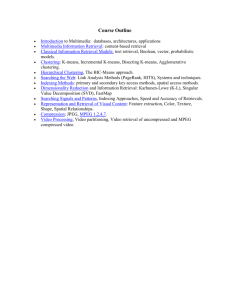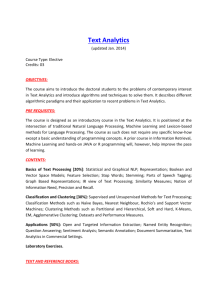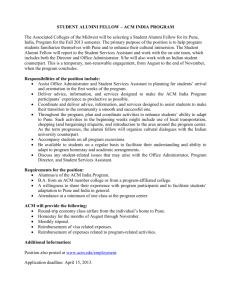Click here to get the file
advertisement
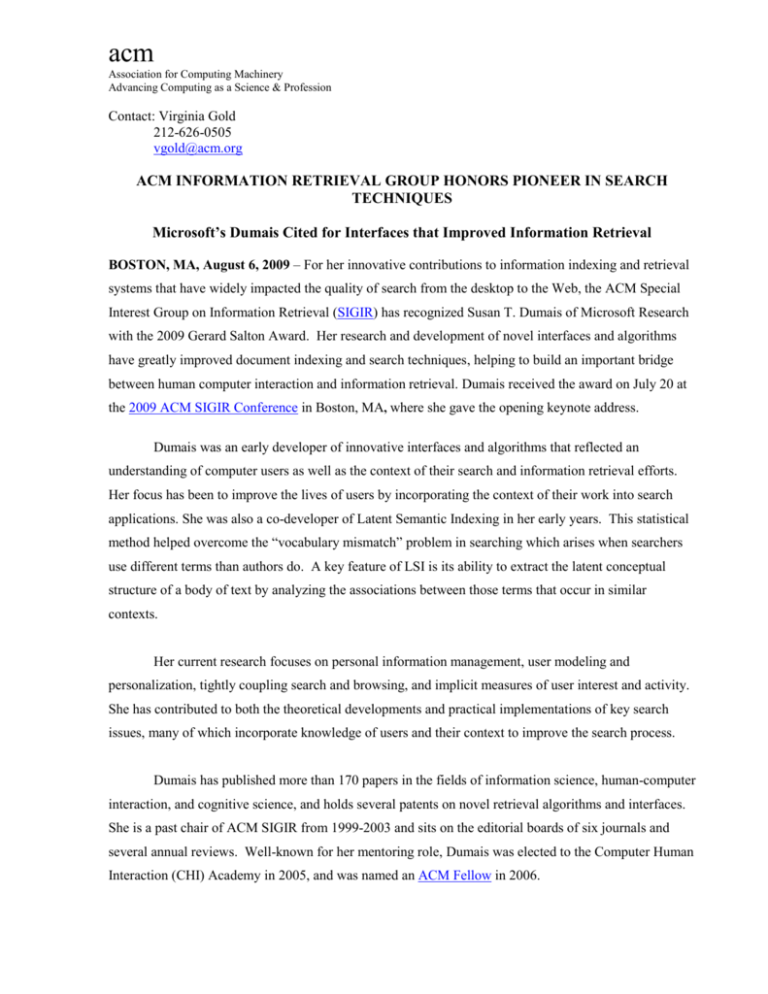
acm Association for Computing Machinery Advancing Computing as a Science & Profession Contact: Virginia Gold 212-626-0505 vgold@acm.org ACM INFORMATION RETRIEVAL GROUP HONORS PIONEER IN SEARCH TECHNIQUES Microsoft’s Dumais Cited for Interfaces that Improved Information Retrieval BOSTON, MA, August 6, 2009 – For her innovative contributions to information indexing and retrieval systems that have widely impacted the quality of search from the desktop to the Web, the ACM Special Interest Group on Information Retrieval (SIGIR) has recognized Susan T. Dumais of Microsoft Research with the 2009 Gerard Salton Award. Her research and development of novel interfaces and algorithms have greatly improved document indexing and search techniques, helping to build an important bridge between human computer interaction and information retrieval. Dumais received the award on July 20 at the 2009 ACM SIGIR Conference in Boston, MA, where she gave the opening keynote address. Dumais was an early developer of innovative interfaces and algorithms that reflected an understanding of computer users as well as the context of their search and information retrieval efforts. Her focus has been to improve the lives of users by incorporating the context of their work into search applications. She was also a co-developer of Latent Semantic Indexing in her early years. This statistical method helped overcome the “vocabulary mismatch” problem in searching which arises when searchers use different terms than authors do. A key feature of LSI is its ability to extract the latent conceptual structure of a body of text by analyzing the associations between those terms that occur in similar contexts. Her current research focuses on personal information management, user modeling and personalization, tightly coupling search and browsing, and implicit measures of user interest and activity. She has contributed to both the theoretical developments and practical implementations of key search issues, many of which incorporate knowledge of users and their context to improve the search process. Dumais has published more than 170 papers in the fields of information science, human-computer interaction, and cognitive science, and holds several patents on novel retrieval algorithms and interfaces. She is a past chair of ACM SIGIR from 1999-2003 and sits on the editorial boards of six journals and several annual reviews. Well-known for her mentoring role, Dumais was elected to the Computer Human Interaction (CHI) Academy in 2005, and was named an ACM Fellow in 2006. Currently an adjunct professor in the Information School at the University of Washington, Dumais has been a visiting faculty member at Stevens Institute of Technology, New York University, and the University of Chicago. She received at B.A. degree in mathematics and psychology from Bates College and a Ph.D. in cognitive psychology from Indiana University. Prior to joining Microsoft Research in 1997, she was a member of technical staff at Bell Laboratories until 1984 when she joined Bellcore (now Telcordia). The Gerard Salton Award is presented every three years to an individual who has made significant, sustained and continuing contributions to research in information retrieval. It is named in honor of Gerard Salton, developer of SMART (System for the Mechanical Analysis and Retrieval of Text), at Cornell University in the 1960s. About ACM ACM, the Association for Computing Machinery www.acm.org, is the world’s largest educational and scientific computing society, uniting computing educators, researchers and professionals to inspire dialogue, share resources and address the field’s challenges. ACM strengthens the computing profession’s collective voice through strong leadership, promotion of the highest standards, and recognition of technical excellence. ACM supports the professional growth of its members by providing opportunities for life-long learning, career development, and professional networking. About SIGIR The ACM Special Interest Group on Information (SIGIR) www.sigir.org focuses on all aspects of information storage, retrieval and dissemination, including research strategies, output schemes and system evaluations. Through its conferences, publications, and awards, it addresses issues ranging from theory to user demands in the application of computers to the acquisition, organization, storage, retrieval, and distribution of information. # # # 2
